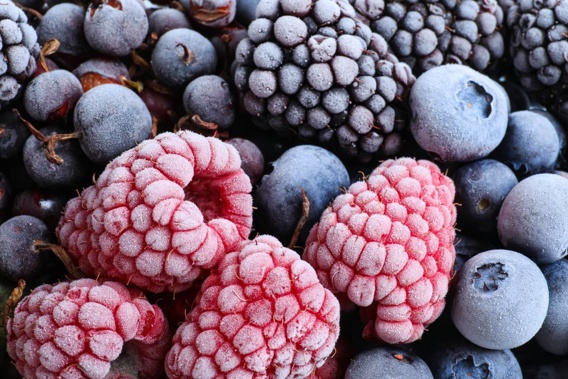
Kiwis are being warned to consider extra precautions if eating frozen berries after three cases of Hepatitis A were linked to consumption of imported frozen berries.
The warning, issued by NZ Food Safety, advises that there is not sufficient information to warrant a product recall and suggested that consumers take extra steps to protect themselves, particularly if they are vulnerable.
"We have recently become aware of three cases of Hepatitis A, all of whom regularly consume imported frozen berries and are linked through virus genotyping," NZFS deputy director-general Vincent Arbuckle said in a statement.
/cloudfront-ap-southeast-2.images.arcpublishing.com/nzme/EDMKKRCBZBN26HBBCGKTE7ZA4E.jpg) Imported frozen berries have been linked to three cases of Hepatitis A. Photo / 123RF
Imported frozen berries have been linked to three cases of Hepatitis A. Photo / 123RF
"While there is not sufficient information on a specific brand to initiate a targeted product recall, the evidence from the cases and from international experience, indicates a risk of exposure to Hepatitis A from consuming imported frozen berries.
"Given we are moving towards the summer months where more frozen berries will be consumed, we considered it appropriate to remind consumers of these simple precautions.
"This is particularly the case for vulnerable communities for whom the consequences of becoming infected with the Hepatitis A virus can be serious."
Pregnant Kiwis, as well as the elderly and those with chronic liver damage, are advised to:
- briefly boil frozen berries before eating them, or
- ensure cooking temperatures exceed 85C for one minute
- wash your hands before eating and preparing food.
Arbuckle says that New Zealand has excellent systems to minimise risk throughout the supply chain and added that food businesses needed to be verified alongside a sampling and testing regime for imported product.
"However, we will never be able to completely eliminate any food safety risk from food for sale. That's why we encourage consumers to consider extra precautions at home.
"The safety of consumers is our number one priority, and we will continue to monitor the situation with that in mind. As part of this, we are working with frozen berry suppliers to ensure they are aware of potential risks and are actively managing the issue.
"If we identify any evidence of a wider risk we will assess and take appropriate action, including product recalls."
This alert comes after a similar warning in 2015,
In that case, a product was identified and a warning issued.
Hepatitis A virus is a waterborne and foodborne liver infection for which a vaccine is available.
The disease is spread through contact with faeces of an infected person, such as through failure of an infected food handler to wash hands properly after using the toilet. After consuming the virus, it takes 15 to 50 days for symptoms to appear.
Hepatitis A symptoms include:
- Vomiting
• Fever
• Nausea
• Loss of appetite
• Jaundice (yellow skin)
• Dark urine
• Fatigue
• Abdominal pain
Take your Radio, Podcasts and Music with you









